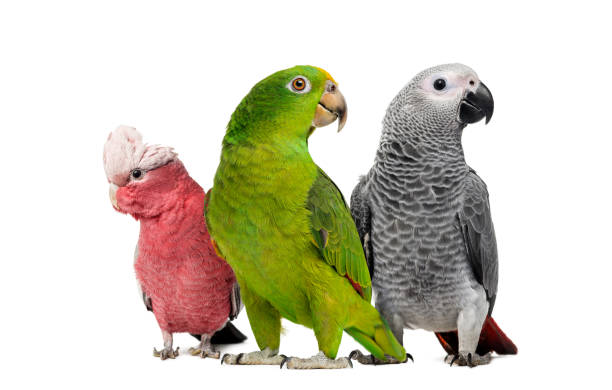RARE EXOTIC BIRD CARE

But exotic birds aren’t just pets — they’re colorful, intelligent and interesting creatures who need particular care to flourish. Whether you’re new to keeping birds or thinking about bringing a rare exotic pet into your home, this guide will help you provide the care and attention they deserve.
How to Choose Your Perfect Exotic Bird
If you are considering bringing home a rare bird, it is important to carefully select one that will suit your lifestyle and experience level. Some exotic species, such as budgerigars and cockatiels, are easily kept even for beginners, while others such as macaws or African greys require more care and expertise.
Key considerations:
Space requirements:
- Macaws are big birds that demand large aviaries, while small birds can live comfortably in moderate cages.
Temperament:
- Some species are more social and need a lot of interaction.
Lifespan:
- Exotic birds can live for decades, so be sure you’re up for a long-term commitment.
Creating the Perfect Habitat
A proper environment is fundamental to your bird’s physical and mental health.
Cage Size and Placement:
- The cage must be large enough for your bird to stretch the wings and move freely. As an example, a parrot requires the cage width to be at least 2-3 times its wingspan.
- Put the cage in a brightly lit location, but not where it is exposed to draughts, direct sunlight or noise.
Accessories and Enrichment:
- “Provide perches of different diameters and textures to keep feet healthy.
- Include toys such as ropes, swings and puzzles to encourage mental stimulation.
Feeding Your Exotic Bird
It is very important that you feed your birds correctly. Many exotic birds need a range of specialized diets.
What to Include:
- Pellets: A top quality pellet mix suited to your bird’s species.
- Fruits and Vegetables: Provide safe choices such as apple slices (without seeds), carrots, spinach, and berries.
- Nuts and seeds: Reserve these as an occasional treat, particularly for species such as macaws that love a diet high in palm nuts.
What to Avoid:
- Never feed your bird chocolate
- avocado
- caffeine
- salty foods they can be poisonous.
Health and Hygiene
Providing a clean environment and calling attention to your bird’s health are crucial.
Cleaning Routine:
- Daily cage cleaning: spot clean and remove waste (urine / faeces) and any uneaten foods.
- Clean food and water bowls in warm, soapy water daily.
- Deep-clean the cage and replace perches and toys weekly.
Signs of Good Health:
- Bright eyes, glossy feathers and active behavior.
- Good appetite and normal vocalization.
When to Visit a Vet:
Take them to an avian vet for regular check-ups and if you observe signs of illness such as lethargy, a lack of appetite, or abnormal droppings take them straight in.
Developing a Connection with Your Bird
Exotic birds are intelligent and social animals. They require your trust building and bonding with them to be happy.
Tips for Bonding:
- Stay near their cage, and speak softly to them until they get used to you.
- Build trust with hand-fed treats.
- Teach your bird some simple commands or tricks using positive reinforcement methods.
Social Interaction:
- Cockatoos and African greys are interaction junkies. If you’re frequently out, get them a companion bird or leave some toys of enrichment behind.
Offering Mental and Physical Stimulation
Boredom can result in behavioral problems such as feather plucking or screaming excessively.
Exercise:
- Give your bird out-of-cage time every day, to stretch its wings in a safe, bird-proofed space.
- Provide climbing nets or play gyms to work off some energy.
Mental Stimulation:
- Rotate the toys to keep them novel.
- Try foraging activities in which the bird has to “work” for its food.
Make Sense of What Your Bird is Trying to Tell You
Exotic birds communicate with vocalization, body language and behavior.
Common Signals:
- Puffing feathers: Sign of relaxation, grooming
- Beak grinding: A Tell Tale Sign That They Are Happy.
- Hissing or puffed up feathers: Another indicator of aggression and discomfort
- By paying attention to these signals, you can understand and respond to your bird’s needs more effectively.
Conclusion
Owning a rare exotic bird is a rewarding experience that needs knowledge, patience and dedication. Your feathers buddy will live a contented, healthy life through secure and stimulating surroundings, right nutrition and bonding with you.
Note: Every species is different, so always look into what your specific bird requires. Your exotic friend will flourish and bring joy for many years if properly cared.
